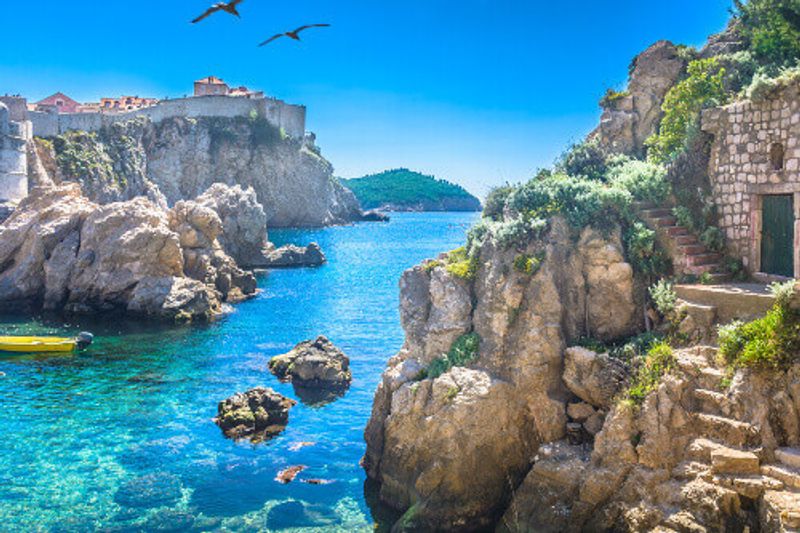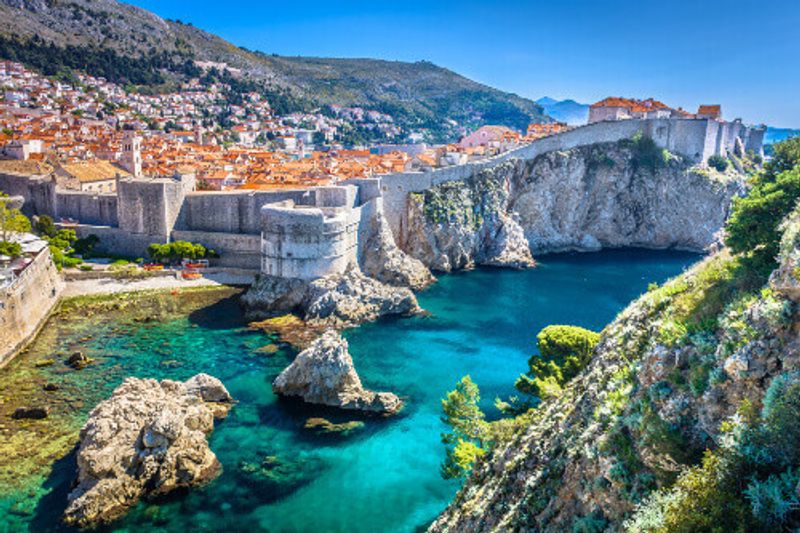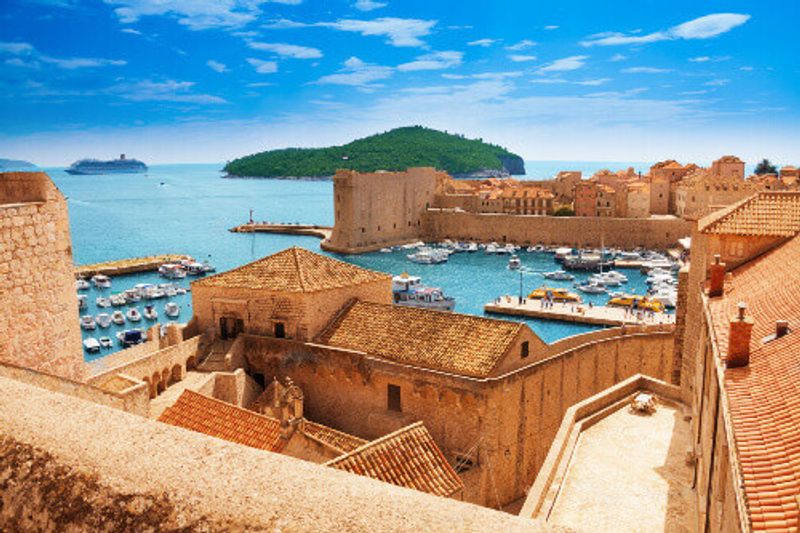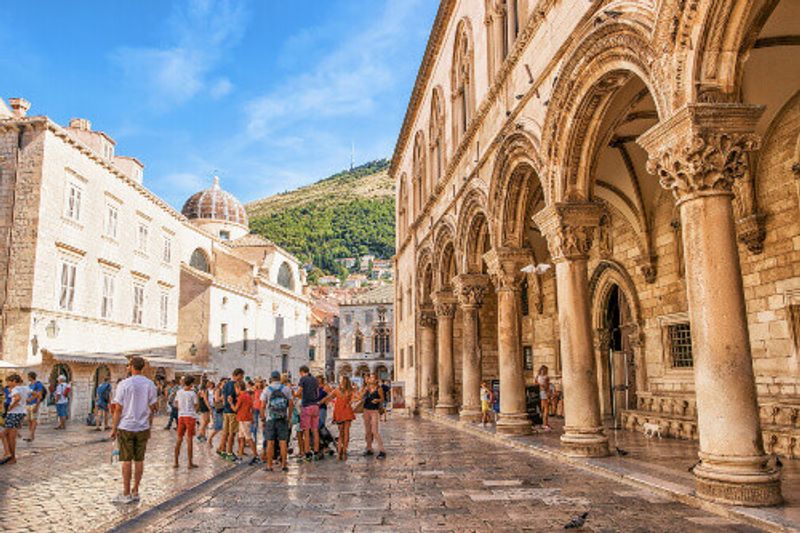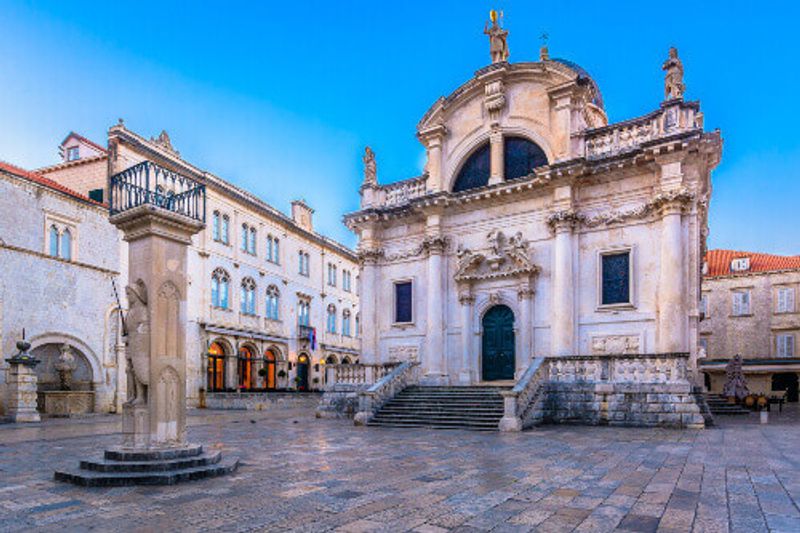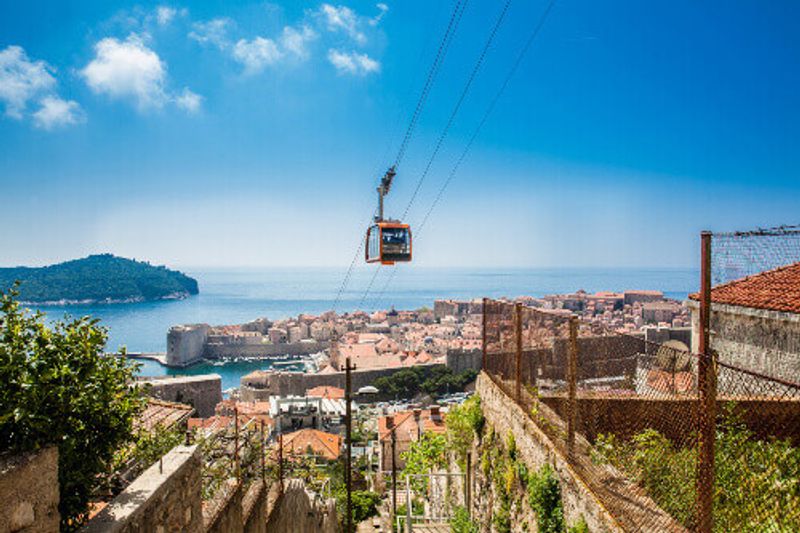This medieval frontier city might no longer be the secret it once was but it’s medieval city walls mean that it is a jewel in Europe’s crown and a popular destination for films to boot
The most famous coastal city of Croatia really is one of Europe’s most spell binding destinations. The sun-soaked fortress town juts out from the turquoise waters of the Adriatic Sea. Ancient white-walled buildings with terracotta roofs are spread across the old town. Forts, churches and medieval towers have kept watch within these city walls for centuries. Dubrovnik is recognisable to many as King’s Landing as dozens of parts of the town were used to film Game of Thrones.
Dubrovnik was the centre of the self-governing Republic of Ragusa from the 14th to early 19th centuries. A sea-fairing people, they were often under threat from neighbouring Venetians and Ottomans, and therefore their city was protected by high walls that look like they grow out from the sheer sea cliffs below. The well-maintained medieval City Wall is dotted with towers created by Florentine architect Michelozzo and makes as an imposing site today, as it would have done hundreds of years ago when approached from the sea.
Today views of the old town and the clear waters of the Adriatic beyond it from the City Wall still inspire awe. But the old town can get busy in summer months so it is advised to get down early to avoid the crowds and beat the midday heat.
The Stradun or main pedestrian street that bisects the old town is a good way to get a feel for the city and to get you’re your bearings. It runs from the Pile Gate – the main entrance to the old town from inland, to the old port on the coast.
Just of the Stradun is the main market square or Gundulićeva Poljana, which has been selling fruit, spices, lavender and olive oils from here for centuries. The Rector’s Palace just south of the Stradun was where the Rector of the Republic of Ragusa lives and ruled from and many of the city’s antiques and treasures from this period are held here. Many of the clocks at the Palace are still set to 5.45 – the exact time when Napolean’s troops entered the city in 1806, putting an end to nearly 500 years of Ragusa rule.
Just beside the Palace is the Church of Saint Blaise. After an earthquake destroyed the original 12-century church, it was rebuilt in 1667 in the Baroque style and is known as Dubrovnik Cathedral. It is said that the skull and limbs of Saint Blaise are held here and a crucifix containing splinters from the Holy Cross itself.
Also inside the city walls is the peaceful Dubrovnik’s Franciscan Monastery, one of the oldest pharmacies in the world. It has been dispensing potions and poisons from here for 800 years. Today it still provides medicines to the townsfolk who come for their orders.
To get a great view of the old town head up Mount Srđ in a short four-minute cable car ride. The views are breath-taking. If you’re looking for a little downtime then there are a number of beaches within walking distance of town including Uvala Lapad Beach, popular with locals and just to the north of the town, or Sveti Jakov, a quieter rock and shingle beach with a stunning view of the city’s fortress.
Croatia also has a wide variety of local wines worth sampling and where better than to try them at D’Vino in the heart of the old town and the city’s first wine bar. Whilst there are restaurants with fantastic views at the top of Mount Srd, there is a much wider option in town. Try the seafood at Lokanda Peskarija on the main port or if you’re really pushing the boat out then book a table at 360 the city’s celebrity hang out.
